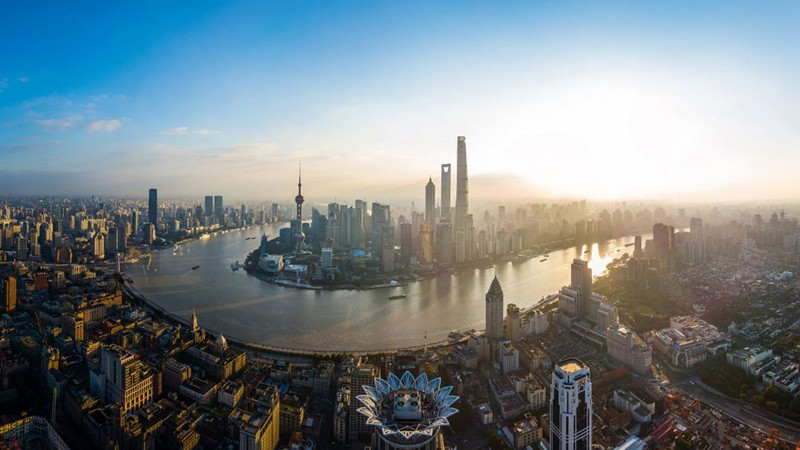Pudong area marks 30 years of economic progress

A morning view of the Huangpu River. [Photo by Chen Zhongqiu/For China Daily]
Financial zone now home to many global institutions
Groundbreaking progress on many fronts has been made in Pudong New Area in Shanghai, which is celebrating the 30th anniversary of its development and opening-up.
As an important gateway connecting domestic and international markets, the 1,210-square-kilometer area in the east of the city will, for many years to come, shoulder more responsibilities relating to China's deepened reform and opening-up.
President Xi Jinping said during an inspection visit to the area in 2010, when he was vice-president, that Pudong should play a key role in implementing national pilot plan policies.
On April 18, in a People's Daily article, Shanghai Party Secretary Li Qiang said Pudong should become a leader in China's efforts to drive economic globalization, adding that this is an irreversible global trend.
Since it was officially established in 2013, the China (Shanghai) Pilot Free Trade Zone, the first of its kind in the country, has laid the systematic groundwork for Pudong's opening-up and that of the entire nation. To date, more than 300 innovational policies have been promoted nationwide.
The negative list for foreign investment, introduced in the Shanghai FTZ in 2013, was expanded nationwide in late 2018. While there were 190 restricted items on the list in 2013, there were just 30 on the latest version revised in late July.
In August last year, Lingang Special Area was included in the Shanghai FTZ, marking the zone's second expansion based on President Xi's decision for the city's development, announced in 2018.
Zhao Xiaolei, director of the FTZ research institute at Shanghai University of Finance and Economics, said opening-up is "in the genes of Lingang", and in just one year, it has largely paved the way for freedom of investment, trade, capital, transportation and employment.
"While sticking to all-around opening-up, Lingang should implement effective 'dual circulation' strategies," he said.
"Industry leaders should play a bigger role to better integrate with regional industrial chains. Lingang, in general, should grow into an important gateway through which the Chinese economy will be better integrated into world economic globalization."


 China's public holidays for 2025
China's public holidays for 2025  Shanghai FTZ: Go all out to build China's first pilot zone for Silk Road E-commerce cooperation
Shanghai FTZ: Go all out to build China's first pilot zone for Silk Road E-commerce cooperation  Favorable policies boost 'China Travel' trend
Favorable policies boost 'China Travel' trend  play
play 